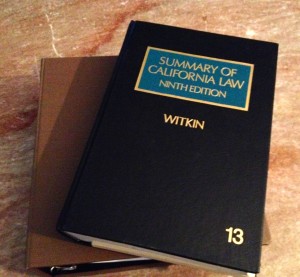Nuisances Prohibited–and Permitted–by Law
WHAT IS A “NUISANCE PER SE”?
Sometimes, legislatures decide that certain kinds of activities or conditions represent an unreasonable interference with the use and enjoyment of property, and enact laws (called “nuisance statutes”) which establish that these situations are nuisances as a matter of law.
HOW DOES “NUISANCE PER SE” IMPACT THE PLAINTIFF’S LAWSUIT?
When legislatures state that the existence of an activity or condition is a nuisance, and enacts a law to that effect, the situation becomes a “nuisance per se” – and the legal requirements to prove and recover for that sort of nuisance activity are reduced.
For example, the plaintiff need not prove an actual interference with the plaintiff’s own use and enjoyment — the existence of an actionable interference is presumed once the activity has been declared a nuisance per se.
The plaintiff simply needs to prove that the situation or condition which the statute describes actually exists, and that the plaintiff is within the zone of impact of the nuisance.
HOW DOES AN ACTIVITY BECOME A NUISANCE PER SE?
Only activities and conditions which a legislature has actually declared to be “nuisances” can constitute a nuisance per se. In other words, the activity or condition must be expressly declared “a nuisance” by an applicable law.
This type of nuisance can be a public nuisance or a private nuisance, depending on the number of people affected and the nature of the nuisance, and the requirements to sue are similar. When the nuisance per se falls into the “public nuisance” category, the plaintiff will still need to show a special injury in order to sustain a private lawsuit against the defendant.
BY LAW, SOME ACTIVITIES CANNOT BE NUISANCES
In addition to stating which activities are nuisances (or constitute nuisances in certain circumstances) legislatures can also enact laws prohibiting certain activities from qualifying as nuisances. In addition, courts can establish these “permitted activities” by case law, thereby preventing them from qualifying as nuisances in the described circumstances.
Once a court or legislature has declared that a certain activity cannot qualify as a nuisance–either outright or in certain stated circumstances–plaintiffs are generally barred from bringing nuisance lawsuits based on that activity.
For example, if a legislature or court states that a building cannot be considered a nuisance simply because it obstructs the views from neighboring properties, neighbors cannot sue for nuisance based on view interference.
Also, activities which are expressly permitted, either by case law or by statute, cannot constitute nuisances. Activities undertaken with legal authority are, by definition, permitted and therefore not nuisances.
***
DISCLAIMER: This article is intended for informational purposes only, does not constitute legal advice to any person or entity, and does not create an attorney-client relationship with any person or entity. Trespass, nuisance, and premises liability are complex legal topics, and no single article can provide complete or comprehensive coverage or information about this or any other legal topic or issue. Your personal rights and liabilities may differ, based on individual facts and circumstances. If you believe you have a legal claim or issue, or wish to know more about your individual rights, consult an experienced attorney immediately.
















